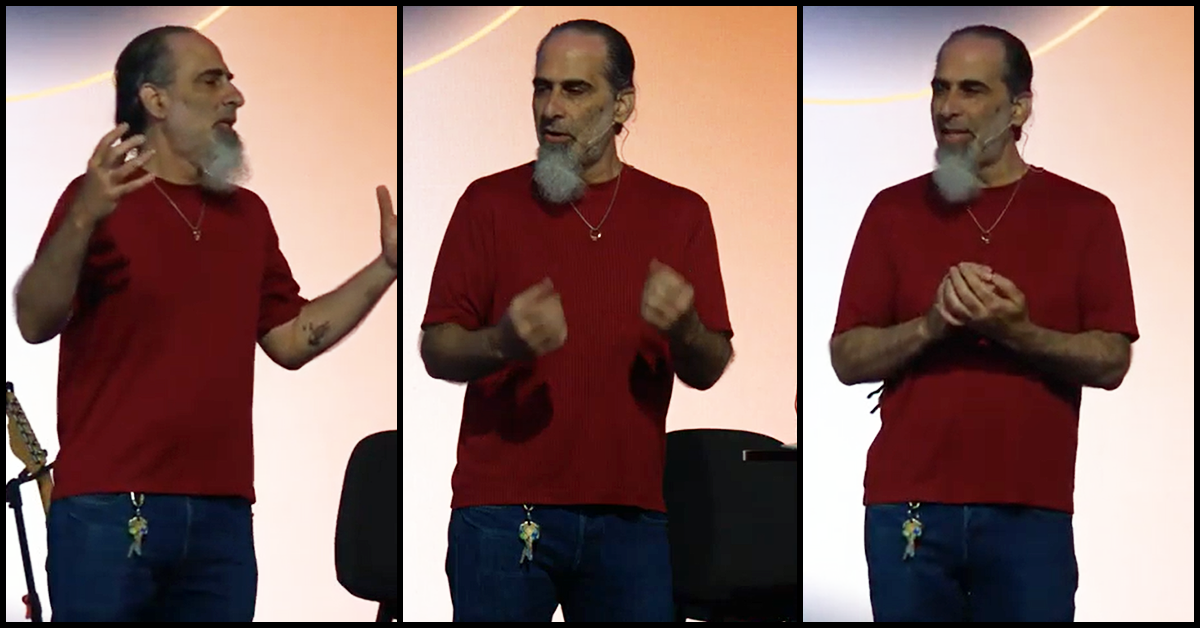Scripture: Matthew 28:1–10.
Well, the core reason that people disbelieve Jesus raised from the dead is that they disbelieve (or, more often, dislike) the Christian religion. That’s understandable given the hateful reputation that Christians have sometimes earned throughout history (even today), and our human need to attempt to disprove that with which we disagree.
However, it should be noted that virtually no one disputes that Jesus’ tomb is empty—the dead body of Christ simply is not there. Even the Jewish religious leaders of that time acknowledged this fact (Matthew 28:12–15). If the body of Jesus had been there, it would’ve been simple work to discredit Christ’s disciples just by going to the tomb and producing the corpse.
Regardless of that, there are a few popular conspiracy theories that attempt to justify disbelief in Jesus’ resurrection. They include:
Conspiracy #1. Christ’s disciples stole his body while the guards slept, then perpetrated a lie that Jesus raised from the dead, and started a new religion based on this lie (the Jewish theory).
To my mind, this is the most plausible of all the conspiracy theories about the resurrection. It’s the oldest, dating all the way back to the time of the disciples, and if you’re willing to overlook some relevant circumstances, I suppose it could’ve happened. There are many problems with this theory under scrutiny, though.
First, there was the issue of the armed guard protecting Jesus’ tomb. Remember, these guards were placed there with one job only, and a very specific one at that: to prevent Jesus’ disciples from stealing the body. And, on the Friday of Jesus’ execution, his disciples were scattered and terrified that they’d be next in line for death. That those cowards could come up with a successful plan to quickly confront, outwit, and overcome professional Roman soldiers by Sunday morning strains the imagination.
Additionally, this theory depends not only on the guards being grossly derelict in their duty, but also being able to (1) sleep through the noise of a large stone being rolled away right beside them, and (2) adeptly identify nighttime grave robbers while they sleep. Honestly, given Jesus’ reputation as a miracle worker, a miraculous resurrection is more plausible than that.
Second, Jesus’ disciples gained nothing of significance from this supposed lie. “It’s not as though there were a mansion awaiting them on the Mediterranean,” says scholar J. P. Moreland. “They faced a life of hardship. They often went without food, slept exposed to the elements, were ridiculed, beaten, imprisoned. And finally, most of them were executed in torturous ways. For what? For good intentions? No, because they were convinced beyond a shadow of a doubt that they had seen Jesus Christ alive from the dead.”
Conspiracy #2. Jesus was never crucified, and so was never resurrected (the Muslim theory).
According to this view, Jesus was too holy to endure the indignity of crucifixion. Instead, God miraculously made someone else to look like Jesus who was then crucified in his place. Afterward, Jesus rose to heaven alive, like Elijah. As the Koran reads in surah 4:157, “but they killed Him not, nor crucified him. Only a likeness of that was shown to them … for a surety they killed him not.”
Muslim tradition declares that none of Christ’s followers actually saw his death, and so instead offers random conjecture about who actually died on the cross. Some theorize Jesus hid while one of his disciples died in his place. Others say Judas was punished by being made to look like Jesus and then crucified. Some believe that Simon of Cyrene took Jesus’ place for the execution. Some even say Satan was actually crucified as punishment for his opposition to Christ.
To my mind, there are a lot of problems with this theory. The biggest (and most obvious) is that it portrays God as a liar, a deceiver, and callously unconcerned about the fate of anyone else. And it contradicts Christ’s own teaching about morality and about his death and resurrection. For me, this falls very short of truth.
Conspiracy #3. Jesus raised as pure spirit, not in a physical body (the Jehovah’s Witnesses theory).
According to the Jehovah’s Witness Watchtower organization: “the King Christ Jesus was put to death in the flesh and was resurrected an invisible spirit creature.”
There are many who believe this theory, but for me the only way it can be true is if the Gospels and the book of Acts reported untruth. (For examples, see Luke 24:36–43; John 20:24–29; Acts 3:15; Acts 10:40, among others). I find the New Testament to be a more reliable source on first-century events than the historically recent Watchtower organization.
More random conspiracy theories.
There are other attempts to disprove Christ’s resurrection, but they are wholly inventive fictions and surprisingly insubstantial. For instance, some say that Jesus must’ve had a long-lost twin, separated at birth, who impersonated him after the crucifixion [insert eye roll here]. Others say that Jesus—after being severely disfigured from beatings, tortured on the cross, and having a spear shoved deep into his side—simply fainted … briefly. Then he woke up all better and pretended to be resurrected. Some are at least honest about their skepticism, saying they simply disbelieve—even though they can’t think of any plausible explanation for Jesus’ empty tomb.
The basic fact is, no conspiracy theory about Christ’s resurrection is fully supportable. This is hard for non-believers to accept because, as Lee Strobel points out, “The empty tomb, as an enduring symbol of the Resurrection, is the ultimate representation of Jesus’ claim to being God.” Dr. Timothy Keller, pastor and author, also likes to say, “The issue on which everything hangs is not whether or not you like [Jesus’] teaching but whether or not he rose from the dead.”
The apostle Paul agrees, writing in the first century:
And if Christ has not been raised, then all our preaching is useless, and your faith is useless. And we apostles would all be lying about God—for we have said that God raised Christ from the grave. But that can’t be true if there is no resurrection of the dead. And if there is no resurrection of the dead, then Christ has not been raised. And if Christ has not been raised, then your faith is useless and you are still guilty of your sins. In that case, all who have died believing in Christ are lost! (1 Corinthians 15:14–18)
Sources:
RES 6–7, 9, 34; CFC 205, 246–247; UI 220; RFG 210
“Why do people disbelieve Jesus raised from the dead?” is reprinted from Bible-Smart: Matthew © 2023 Nappaland Communications Inc. Published Tyndale House Publishers/Rose Publishing. All rights reserved. Reprinted by permission.
Have a question about the Bible? Use the Ask link to submit your question for future consideration on Bible-Smart.com.
Looking for more? Check out these links:












